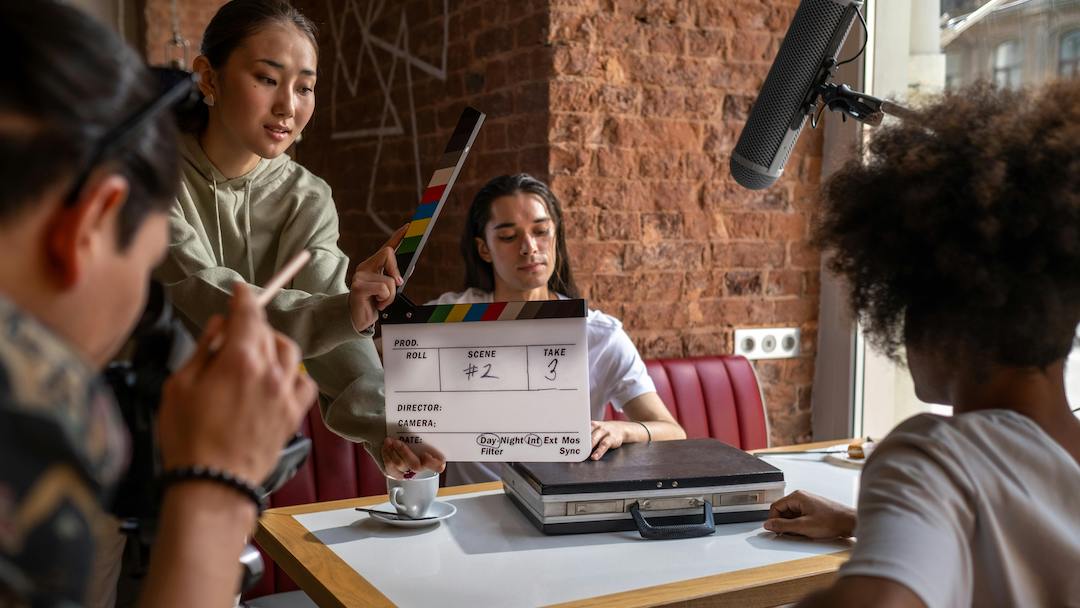In today’s world of global storytelling, we’re seeing more and more exciting collaborations between international creatives and local narratives.
For a Spanish producer diving into a British story, there’s a wealth of creative opportunities waiting to be explored.
With streaming platforms making content from around the world instantly accessible, this fresh perspective can breathe new life into the narrative, even as it presents its own set of unique challenges and rewards.
By understanding these dynamics, we can appreciate how such cross-cultural collaborations can lead to bold, authentic, and innovative storytelling.
One of the biggest assets a Spanish producer can bring to a British story is distance. Cultural distance gives clarity, without the baggage of national self-definition or domestic expectations.
This creative detachment might push the story into more daring, stylised, or ambitious territories, broadening its appeal beyond the UK. It might emphasise emotional expressiveness or vibrant ties, which can add warmth and complexity to the portrayal of British life.
International producers often spot themes, characters, and storylines that local producers might overlook or dismiss as too mundane.
Take for example the story of Dorothy Levitt, Britain’s first female race driver and a true pioneer of women’s liberation in the Edwardian era. While Levitt’s story has fascinated historians and biographers, it has never been given the major screen adaptation it deserves.
Why?
Possibly because British productions often gravitate toward figures the public recognise. People with established legends and mythologies, like Margaret Thatcher, Virginia Woolf, the Austen sisters or Queen Elizabeth II. I’m currently developing a miniseries based on a book about Levitt because I don’t want her to be just a footnote in feminist history, but a bold, internationally relevant story of rebellion and modernity, appealing to global audiences attuned to narratives of empowerment, defiance and motor racing.
Many stories like Levitt’s could remain underexplored due to the conservatism or the current tendency of remaking movies or TV shows because it is safe, but literature, for instance, is a magnificent source of rich and new material.
We all need to be braver and look for stories that have never been told before. I am sure there are plenty of unsung heroes and heroines out there that we can all discover.
However, international perspectives must be balanced with local expertise to ensure authenticity—both creatively and technically.
Finding the right and rooted British production partner is crucial. Without it, there’s a risk of misrepresenting the setting, dialogue, or cultural nuances that make the story authentic.
A collaborative approach between a Spanish producer and a British production team can create a dynamic fusion: the producer’s international creativity combined with the local partner’s grounded understanding.
For a Spanish producer adapting a British story, language becomes another creative layer. Dialogue, in particular, rarely translates directly. Cultural references, idiomatic language, and social contexts need careful translation—not just linguistically but culturally.
The story must feel natural in its new British setting without losing the original’s essence.
The reward for this complex process is a story that bridges cultures, offering something uniquely hybrid: a British narrative enriched with Spanish emotional depth, narrative rhythms, and perhaps a more lyrical or passionate style.
This fusion can result in storytelling that is both innovative and deeply human.
The benefits of international producers tackling British stories are not just theoretical. Projects like His Dark Materials—a British story co-produced by BBC and HBO—demonstrate how international partnerships can enrich storytelling.
More recently, Spanish companies have made successful forays into English-language productions. The Spanish producer Bambú Producciones, known for Velvet and Cable Girls, collaborated with Apple on Land of Women, which, while set in Spain, demonstrates how Spanish producers are positioning themselves for international, English-speaking markets.
With British stories, the next step is natural. International companies have the creative hunger to find stories that British broadcasters or studios have left dormant, to frame them with global ambition, and to build the partnerships that will bring them to vibrant life on screen.
British stories told by Spanish producers won’t just be British stories anymore—they’ll be global stories with British souls.
And that’s exactly the kind of storytelling the world is hungry for.

Olga Parera Bosch is the CEO and producer of Sweet Film Memories, a production company based in Barcelona with the aim of producing locally, but also internationally, specially in the UK. Olga is also a dubbing Spanish translator with more than 14 years of experience that allowed her to translate scripts from big names like Tony McNamara, Martin Scorsese, Scott Frank or Alex Garland. She is currently developing a miniseries on Dorothy Levitt’s life and legacy in the UK and a dark comedy series in Spain.
